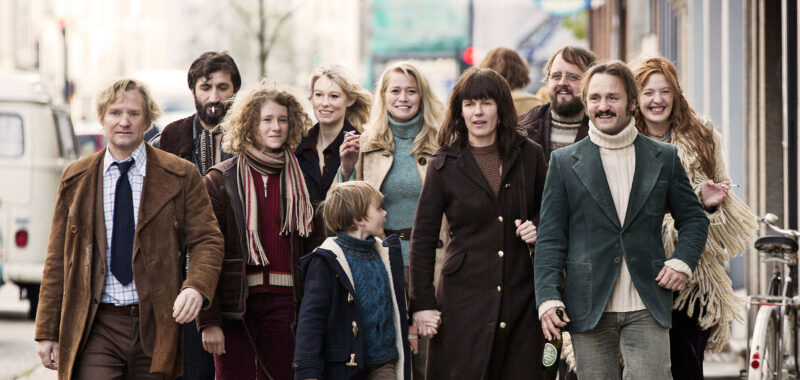The idea of the commune is a community living together, and having equal rights when it comes to making any kind of decision about the property shared in common. The 70s were the time when Mao was leading China and inspiring the world with his approach to politics, and the strike of antiwar movements, the hope for being able to live together in liberty, equality and fraternity. As phenomenal as it sounds in theory, it may be a little bit optimistic to imagine it coming to life. After all, there is a fine line between sinking into personal desires and maintaining solidarity.
Thomas Vinterberg is known fearless in creating ambiguous individual interactions and playground with sociological acceptance of how the things should be and should be done. He based his movie on his youth, actually growing up in a commune outside of Copenhagen in the 70s just like the time of the events occur in the movie. The story starts with a nuclear family moving into the husband’s big childhood house after his father passes away. After realising that the expenses of the house are much more than they can defray on their own, they decide to invite -not so close- friends to come and live with them to help pay the rent. Although as much caricature as supporting characters seem to be, that actually might be intentional, since the focus in the story is more on the relationship dynamics and the family drama. It actually could have been less melodramatic than it turned out to be. There are little nuances in the movie that have a dark comedy within such as the little boy at 6 having a heart condition and saying ‘Hello my name is Vilads and I’m going to die at age 9.’ and one of the members of the commune’s reaction to people leaving personal belongings in the common area as throwing them away.
The story is going back and forth to its genuine promise and narrative. Even so, Kollektivet is worth seeing for the sake of intense methods of actings especially by Trine Dyrholm, and Ulrich Thomsen with whom Vinterberg has worked before several times. It was also nominated for Golden Bear and it helped Dyrholm raise the Silver Bear for Best Actress at the 66th Berlinale.
